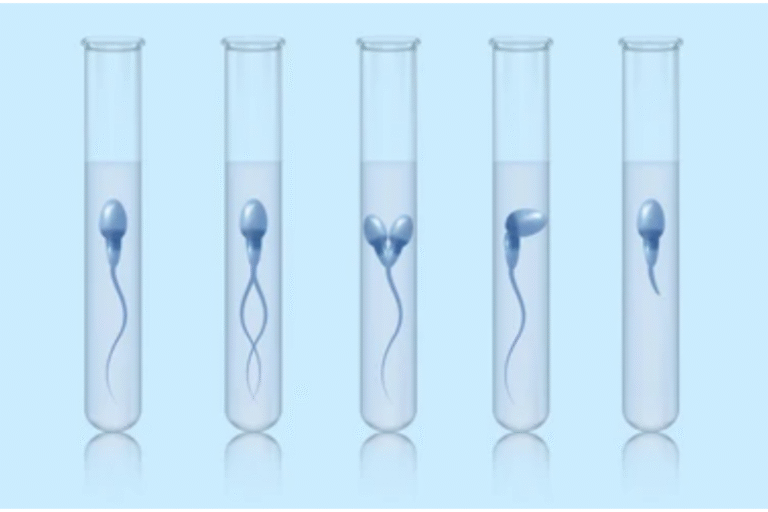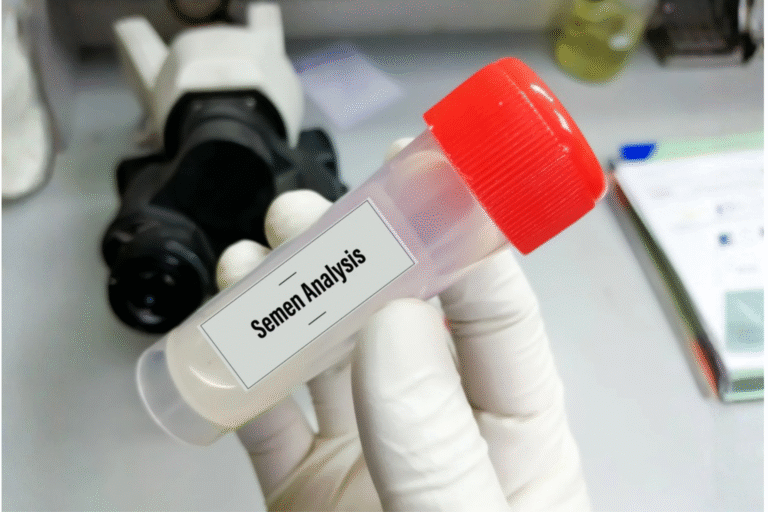Let’s talk about what AMH actually tells us—and more importantly, what it doesn’t.
You got your AMH test results back, and now you’re Googling frantically. Maybe your number is low and you’re panicking that your fertility window has slammed shut. Maybe it’s “normal” but you’re still not pregnant and wondering why. Or maybe someone told you to get your AMH checked and now you’re obsessing over a number you may not fully understand.
What Is AMH, Actually?
AMH stands for Anti-Müllerian Hormone. It’s produced by the tiny follicles in your ovaries—the sacs that contain your eggs. The more follicles you have actively growing, the higher your AMH level.
Think of AMH as a rough headcount of how many soldiers you have in your army. It tells you about quantity—how many eggs are in your reserve—but it says nothing about quality, how well those eggs will perform, or whether you’ll actually get pregnant.
Here’s what AMH measures: ovarian reserve, which is basically the number of eggs you have left in your ovaries at this moment.
Here’s what AMH doesn’t measure: egg quality, your actual fertility, your chances of getting pregnant naturally, or when menopause will happen (despite what many websites claim).

The Hype vs. The Reality
AMH has become wildly popular in fertility testing because it’s convenient—you can test it any day of your cycle, and it’s relatively stable month to month. But convenience doesn’t equal comprehensive information.
The hype: AMH is marketed as a “fertility test” that tells you how fertile you are and how much time you have left to have children.
The reality: Research clearly shows that AMH is a poor predictor of your actual ability to get pregnant naturally. Multiple studies have found that women with low AMH have similar chances of conceiving naturally compared to women with normal AMH, once you account for age.
When AMH Is Actually Useful
So if AMH doesn’t predict natural fertility, when is it helpful?
Planning IVF treatment: AMH is excellent at predicting how your ovaries will respond to stimulation medications during IVF. High AMH? You’ll likely produce many eggs (and your doctor needs to watch for ovarian hyperstimulation). Low AMH? You’ll probably produce fewer eggs, and your protocol will be adjusted accordingly.
Assessing risk of poor response or ovarian hyperstimulation: Before starting IVF, AMH helps doctors choose the right medication dose and predict whether you’ll need more aggressive stimulation or careful monitoring to avoid complications.
Evaluating certain medical conditions: AMH can support a diagnosis of PCOS (usually very high AMH) or premature ovarian insufficiency (very low or undetectable AMH).
That’s it. Those are the situations where AMH is genuinely useful. For everything else? It’s overrated.

Age Matters More Than AMH
Here’s the uncomfortable truth that gets buried under AMH obsession: your age is a far better predictor of fertility than your AMH.
A 2025 study of nearly 5000 women found that AMH’s predictive value for pregnancy success increases with age—it becomes more important in women over 35. But in younger women, the correlation is weak. This tells us something critical: AMH needs to be interpreted alongside age, not in isolation.
A 40-year-old with high AMH will still face age-related egg quality issues. A 28-year-old with low AMH will likely still have good quality eggs, just fewer of them.
The strongest predictor of fertility isn’t AMH—it’s age. Always has been, always will be.
Why Doctors Order AMH Tests (Even Though We Know Its Limitations)
If AMH has so many limitations, why do we still test it?
Because it’s one piece of a larger puzzle. We don’t make treatment decisions based on AMH alone—we look at:
- Your age (most important)
- Your menstrual cycle regularity
- Your antral follicle count on ultrasound (similar information to AMH)
- Your FSH levels
- Your medical history
- Your partner’s semen analysis
- How long you’ve been trying
AMH is part of that picture, not the whole picture.

What You Should Do If Your AMH Is Low
First, breathe. Low AMH is not a fertility death sentence.
If you’re trying to conceive naturally: Low AMH doesn’t significantly reduce your chances. Focus on timed intercourse, maintaining a healthy lifestyle, and giving it time. If you’re not pregnant after 6-12 months (depending on your age), see a fertility specialist—not because of your AMH, but because it’s time for a full evaluation.
If you’re considering IVF: Low AMH means you’ll likely need higher medication doses and might retrieve fewer eggs per cycle. This doesn’t mean IVF won’t work—it might just mean you need multiple cycles or a different protocol. Discuss realistic expectations with your doctor.
If you’re not trying yet but planning for the future: Low AMH might be a signal to not wait too long to try, especially if you’re over 35. But it’s not an emergency. Consider your timeline realistically and make informed decisions—don’t panic.
What You Should Do If Your AMH Is Normal or High
Normal AMH: Great, but remember—it doesn’t guarantee easy conception. Age, egg quality, and other factors still matter. Don’t let a “good” AMH number give you false confidence to delay trying if you’re ready to have children.
High AMH: This might suggest PCOS, especially if you have irregular cycles or other PCOS symptoms. High AMH also means higher risk of ovarian hyperstimulation during IVF, so your doctor will monitor you carefully.
Ready for a Complete Fertility Assessment?
If you’re concerned about your AMH level—or any aspect of your fertility—let’s have an honest conversation. We’ll evaluate your complete fertility picture, not fixate on one test result. AMH is one data point among many, and we’ll help you understand what it means in context of your age, goals, and overall reproductive health.
Book a consultation with us to get a comprehensive fertility assessment and a realistic, individualized plan moving forward.
Because you deserve more than a single number and a Google spiral. You deserve complete information and a doctor who won’t overhype or dismiss what matters.









